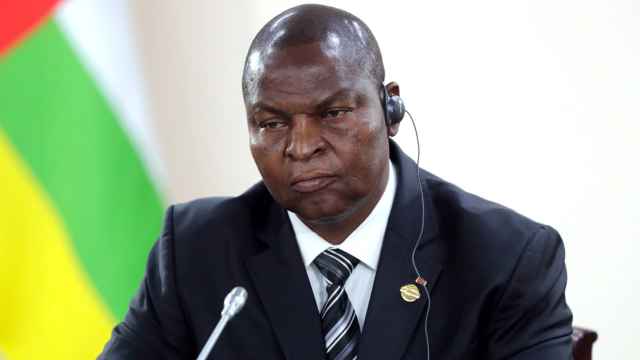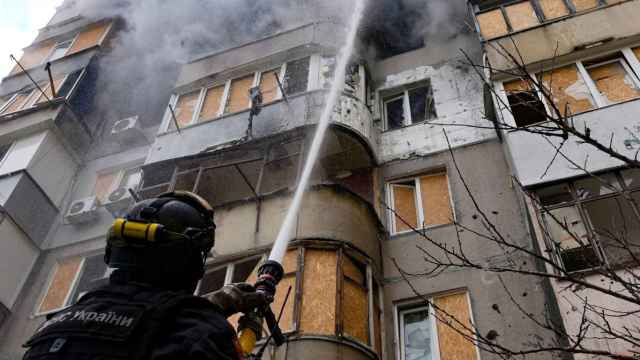SOCHI — Sochi Olympic organizers see no need to bring in stored snow to cope with the warm temperatures in the mountains — but are ready to do so if necessary.
Dmitry Chernyshenko, head of the local organizing committee, said Tuesday that contingency plans are in place for covering slopes with snow preserved in reservoirs from previous winters.
Organizers have stored about 700,000 cubic meters of snow near the mountain venues above Sochi.
"In case we will need some snow, we can use it from our reservoirs," Chernyshenko said in an interview. "We do not need it now. We did not start our backup plan yet."
Temperatures in Sochi on the Black Sea coast have been rising, raising concerns about snow conditions. On Tuesday, temperatures reached 11 degrees Celcius along the coast and 5 C in the alpine cluster in Krasnaya Polyana.
"It is not a big surprise for us," Chernyshenko said. "We are a subtropical city. We tested our mountain venues for the couple of previous winter seasons. We faced some abnormal warm weather."
Conditions at the halfpipe venue have been under particular scrutiny, with riders complaining about sand and mush at the bottom. Organizers said they would use chemicals to keep the ice frozen at higher temperatures.
"The weather is very unpredictable," Chernyshenko said. "Our forecast says the temperature will go down in a couple of days. We hope that no extra measures are needed."
Sochi also boasts Europe's largest snow-making system, which can even make snow at temperatures up to 15 C. Chernyshenko said snow-making was being used at the ski jump of the Nordic combined venue.
This is not the first time Winter Games organizers have had to deal with the impact of mild weather on courses.
At the Vancouver Games four years ago, snow was brought in by helicopter as higher-than-average temperatures wreaked havoc with the competitions.
"The conditions have changed," said American skier Bode Miller. "Now it is a completely different race course. It is going to be tough, because of all the good slalom skiers out there.
"The downhill could have done some real separation if the course remained hard and icy. It could have been a real challenge for the slalom guys. It could have made a pretty big gap on the downhill side."
Organizers in Russia also had to battle melting snow at last year's Olympic test events.
"With the Olympic Winter Games, the weather always has an impact," Sochi Olympics spokeswoman Alexandra Kosterina told reporters. "If we talk about mountain cluster, there is no way it cannot.
"If you have seen Olympics in the past, all of the organizers always had delays, always had to adjust the track depending on weather conditions.
"There were adjustments with the halfpipe, there were adjustments with the jumping center," she said.
When Sochi bid for the Games back in 2007 the city's subtropical climate coupled with the snow-capped Krasnaya Polyana mountain tops were pitched as an attractive asset.
Material from Reuters is included in this report.
A Message from The Moscow Times:
Dear readers,
We are facing unprecedented challenges. Russia's Prosecutor General's Office has designated The Moscow Times as an "undesirable" organization, criminalizing our work and putting our staff at risk of prosecution. This follows our earlier unjust labeling as a "foreign agent."
These actions are direct attempts to silence independent journalism in Russia. The authorities claim our work "discredits the decisions of the Russian leadership." We see things differently: we strive to provide accurate, unbiased reporting on Russia.
We, the journalists of The Moscow Times, refuse to be silenced. But to continue our work, we need your help.
Your support, no matter how small, makes a world of difference. If you can, please support us monthly starting from just $2. It's quick to set up, and every contribution makes a significant impact.
By supporting The Moscow Times, you're defending open, independent journalism in the face of repression. Thank you for standing with us.
Remind me later.





